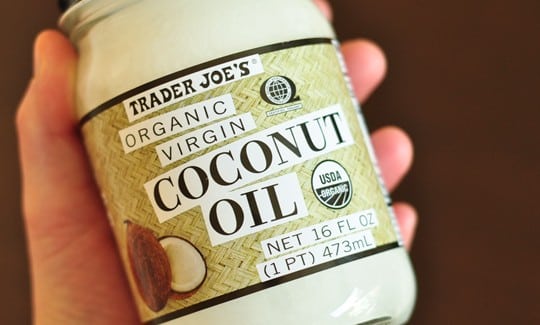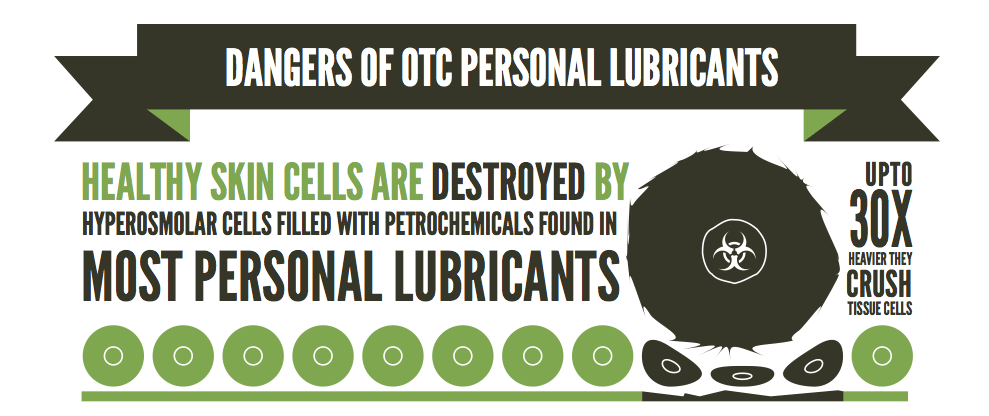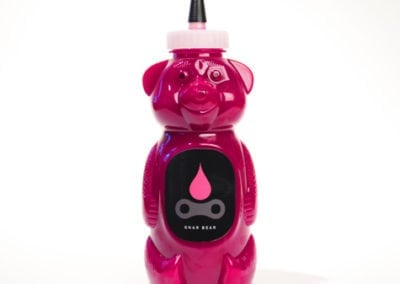It seems like everyone is using coconut oil these days – and not just for sautéing veggies. With seemingly limitless uses for health and beauty, what was once a humble pantry staple has become the latest all-purpose staple. But like any explosive beauty trend, there comes a point when things can get taken a little too far. The recent media fixation on coconut oil has led many-a-blogger to recommend its use as a personal lubricant, citing its edibility as the key factor in making it suitable for use internally and on our most delicate tissues. Which makes sense: if you can eat it, then you can certainly use it as a personal lubricant, right? Not for everyone. Here are 4 reasons why:
1. It’s not as safe as you think it is.
Just because it’s safe (and delicious) to eat and cook with, does not mean that it’s safe to use on your precious lady parts. There have been no scientific studies looking at the use of coconut oil as a personal lubricant, and for that reason, there is still a lot we don’t know about its effects. Edibility alone is not a determining factor in whether a substance is safe to use as a lubricant. This completely ignores the fact that coconut oil has many other properties – properties that make it a less than ideal personal lubricant. For example, coconut oil is considered to be fairly comedogenic- which means it can easily clog your pores. For some people this isn’t an issue, but for others it can cause bumps and irritation to the skin that comes into contact with the oil.

2. It disrupts the vagina’s natural equilibrium.
One of the coolest things about coconut oil is its amazing antiviral and antibacterial properties, which is why so many people have used it to heal cuts, scrapes, and burns. But this ability to kill viruses and bacteria is the exact reason coconut oil has absolutely no business being inside you during sex. The vagina is complicated territory, with both good and bad bacteria constantly battling for control. Adding an antibacterial substance into the mix interrupts the process – killing good bacteria along with the bad – and can lead to overgrowth of bacteria, changes in Ph, and infections that you don’t want!

3. It has all the downsides of oil-based lubricants.
Since coconut oil is (obviously) an oil, it has the same problems associated with any other oil-based lubricant. For one, oil isn’t compatible with latex, which means you can’t use it with traditional condoms and certain sex toys. Bid farewell to your pocket rocket if you plan on using coconut oil as a lube! And like any oil, coconut oil will inevitably leave you with an oily coating that’s hard for our water-based human tissue to break down. So whether you’re using a condom or not, silicone-based lubes are always a safer choice, and water-based lubes without parabens, glycerine, or propelyne glycol are great choices too.
4. It’s not user-friendly.
Ever try removing coconut oil from the jar on a cold winter day? It’s not fun – and I have several bent spoons to prove it. Now imagine that whole process getting in between you and your partner. Need I say more?
If you’ve been using coconut oil as a lubricant, think about whether it’s the right choice for you. Are you feeling irritated? Are you using condoms? Is it causing any discomfort? If so, then just like any other lube, you may want to make a switch to something non-irritating. A high-quality lube is all you need to feel secure knowing that what’s helping you get wet won’t also irritate your delicate bits!







Dear author!
If I may I will share my disagreement with your thoughts, especially in the points 3 and 4. Regarding point 1 I am absolutely in line with your argument. Just because something is edible, it does not need to be a good lubricant, likewise if something is a good lubricant there’s no guarantee that your stomach will be happy about it.
To point 2 I do agree, but I wouldn’t give any recommendation. You will have to work out what’s right for your vagina. There are people who claim to be rid of their previously frequet yeast infections ever since using coconut oil as a lubricant.
Point 3. Oil is not oil. Whilst coconut oil does break down latex and even polyisoprene, it does not contain all the downsides of mineral oils, that are byproducts of the petroleum refining. Unlike for example chapstick (which contains mineral oil), coconut oil is easily washed off clothes and bedsheets. Also the WHO classifies mineral oils as group 1 carcinogens. Something you won’t have to worry about with coconut oil.
Now if you use “pocket rockets” that are broken down by coconut oil, then you shouldn’t use these in the first place! Jelly, TPE, TPR, PVC and all that yucky stuff is porous, will give shelter to bacteria and might even give off toxins or carcinogens. There is no regulation on body safety of sextoys in the US! So producers do what is cheap. Stay away of these toys. Use glass, silicone or metal.
Back to coconut oil: It is safe to use with silicone toys, which are bodysafe and non-porous.
Also the human skin is just doing fine with oils. Actually it produces them. You then go on to say that siliconbased lubricant is always the safer option. THAT one though is difficult to break down for skin, as it is an anorganic substance! And though it works well with latex, it does not at all with silicone toys! Your text might suggest that.
As for point 4, this is ridiculous. Do you keep your jars on the front porch, so that cold winter days will make cement out of them?! Coconut oil melts wonderfully at body temperature but stays relatively solid (not hard!) at roomtemperature. This makes it ideal for getting the right amount of lube. Also it is great for massages, and as I said, washes off easily 🙂
There is a downside to coconut oil though you didn’t mention: its not environmentally friendly, as its produced mostly in monocultures and also rainforest is cut down for plantations of coconut. Crimes like landgrab are associated with it. It isn’t very economic too as in comparison with other oils, one coconuttree does not give you do much land to oil value.
Thanks though for bringing up the topic!